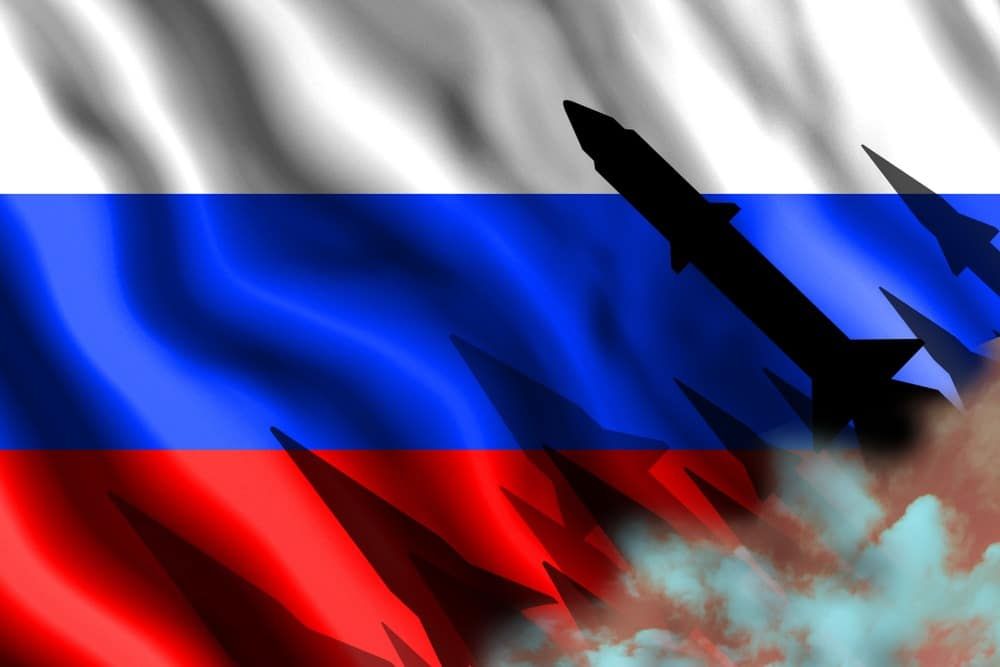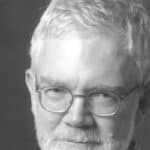Read the fine print: Russia’s nuclear weapon use policy
By David Holloway | March 10, 2022

The risk of nuclear war casts a dark shadow over the already-tragic events in Ukraine. On February 19, Vladimir Putin launched an exercise involving Russian strategic forces. On February 24—the day Putin invaded Ukraine—he warned that Russia would respond immediately to those who stood in its way, with consequences that “will be such as you have never seen in your entire history.” On February 27, he publicly ordered his minister of defense and chief of the general staff to transfer Russia’s “deterrence forces” to “special combat readiness.” Putin’s aim was evidently to deter outside intervention and to signal Russia’s determination to achieve its goals.
But another, more troubling, aspect to Putin’s recent comments has received little or no attention. It has to do with the circumstances under which Russia might use nuclear weapons.
In June 2020, Putin signed a decree—the Basic Principles of the Russian Federation’s State Policy in the Domain of Nuclear Deterrence—that specifies two conditions under which Russia would use nuclear weapons. The first is unsurprising: “The Russian Federation retains the right to use nuclear weapons in response to the use of nuclear weapons and other types of weapons of mass destruction against it and/or its allies…” But that sentence ends with an unusual statement: “… and also in the case of aggression against the Russian Federation with the use of conventional weapons, when the very existence of the state is put under threat” [emphasis added].
In his February 24 speech, Putin echoed that unusual language to describe his Ukraine invasion. The United States, he claimed, was creating a hostile “anti-Russia” next to Russia and in Russia’s historic land. “For the United States and its allies, it is a policy of containing Russia, with obvious geopolitical dividends,” he said. “For our country, it is a matter of life and death, a matter of our historical future as a nation. This is not an exaggeration; this is a fact. It is not only a very real threat to our interests but to the very existence of our state and to its sovereignty” [emphasis added]. Putin has defined the current situation as one in which, in line with the principles of its deterrence policy, Russia retains the right to use nuclear weapons.
This does not mean that Russia will use such weapons, and deterrence at the strategic level appears to be robust. At the tactical level, however, the situation is different. The 2018 US Nuclear Posture Review ascribed to Russia the view that “the threat of nuclear escalation or even first use of nuclear weapons would serve to de-escalate a conflict on terms favorable to Russia.” Russian military theorists have certainly discussed this idea of “escalating to de-escalate,” though whether it is a part of Russian doctrine is disputed among students of Russian strategy. “Escalating to de-escalate” in a war with NATO would run the serious risk of escalation rather than de-escalation. In a local war with a non-nuclear adversary, however, the small-scale tactical use of nuclear weapons might be a serious temptation, especially if the war were not going according to plan. In short, the impulse to escalate in a tight corner could be strong.
There are two reasons for drawing attention to Putin’s recent words. First, in echoing the Basic Principles of Russian Federation’s State Policy in the Domain of Deterrence, Putin provides a frame of reference for his thinking about nuclear weapon use. This, in turn, provides context for assessing the risk that he will escalate to the use of nuclear weapons.
Second, in a period of high tension, a miscalculation could have catastrophic consequences, as Russia’s recent decisions arguably show. World leaders should do as much as possible to dissuade Putin from using of nuclear weapons, not so much by the threat of retaliation in kind, since that could lead to dangerous escalation. Rather they should prepare the ground for a massive political response to a potential decision Putin might make to cross the nuclear threshold.
Together, we make the world safer.
The Bulletin elevates expert voices above the noise. But as an independent nonprofit organization, our operations depend on the support of readers like you. Help us continue to deliver quality journalism that holds leaders accountable. Your support of our work at any level is important. In return, we promise our coverage will be understandable, influential, vigilant, solution-oriented, and fair-minded. Together we can make a difference.
Keywords: Putin, Russia, Ukraine, nuclear risk, nuclear weapons
Topics: Nuclear Risk, Nuclear Weapons
















Make peace with your maker. I don’t see any scenario that doesn’t end in armageddon. Putin will not lose in Ukraine. The war will get ugly and sanctions will make daily life in Russia difficult. Which will cause escalation. We have reached the inevitable conclusion of mankind’s obsession with self destruction. Farewell friends
I analyzed the June 2020 document (specifically endorsed by Putin) in https://thebulletin.org/2021/10/bilateral-strategic-stability-what-the-united-states-should-discuss-with-russia-and-china/ . A key statement in that document is: “[t]he Russian Federation reserves the right to use nuclear weapons in response to the use of nuclear and other types of weapons of mass destruction against it and/or its allies, as well as in the event of aggression against the Russian Federation with the use of conventional weapons when the very existence of the state is in jeopardy.” Thus Putin has actually stepped well outside of the limits he had previously declared.
Good work. Putin had the malevolent foresight to subtly adjust his country’s legal definitions, thus the upcoming military order by Putin initiate Armageddon, and because of that legalese caveat, Putin would NOT be considered a [nuclear] war criminal, but instead he would claim that he was acting within the law, and that he was only following their constitution.
For someone who makes bombing hospitals a matter of policy, it’s not a stretch to imagine that he would use a tactical nuclear weapon under the pretext that Russia faces an existential threat from Ukraine or NATO.
I’m afraid that if that happens things will escalate very quickly and life as we know it will be over on this beautiful planet.
Here goes another comment that won’t get posted. Cliff Notes’ version: MAD ( assured mutual destruction ) assumes 2 things. The first is that there is no misunderstanding. This has already been shown to be a problem. During the Cuban Missile crisis the misunderstandings were so numerous and potentially catastrophic that McNamara commented that it was an accident that we are still here. The second is that BOTH parties are rational. The second assumption grows less tenable with each passing comment made by Putin.
Please read also the article in this volume that is a scholarly review of Russia’s nuclear armaments: Russia’s Nuclear Arsenal, 2022, The Nuclear Scientist. Putin; obeys no laws, negotiates with nobody, irrational, facing defeat, will not surrender, but holds the world’s largest and most diverse collection of nuclear warheads. Let us refocus our attention on the price of gas and St. Patrick’s Day.
Is there any thought that it might be time to ask where the hands of the clock should be? Can the hands be moved between annual reviews?
A little over a minute and a half is pretty goddamned close, wouldn’t you say?
Confronting Putin and forcing his hand may be the only card we have left to play. Anything else would be capitulation to his will, which we all would ultimately pay the price for anyway. Trying to buy time for his government to subvert him may well send the wrong message.
Ruthless dictators like Putin understand only one thing. Force, and the resolve to use it. The policy of the Free World must be that use of tactical nuclear weapons will result in a like and swift nuclear response, or he will fail to be deterred.
The Russian policy on the use of nuclear weapons is actually far more restrictive than the equivalent US policy. The US policy allows it “to defend the vital interests of the United States or its allies and partners”… and this is even in the absence of any nuclear threat. !!